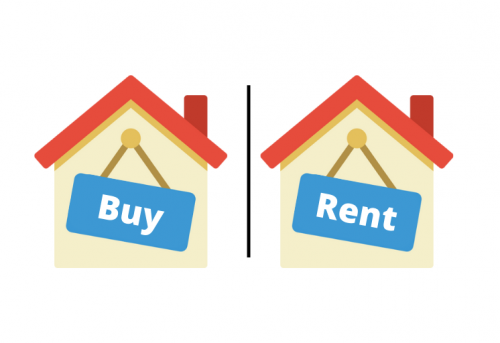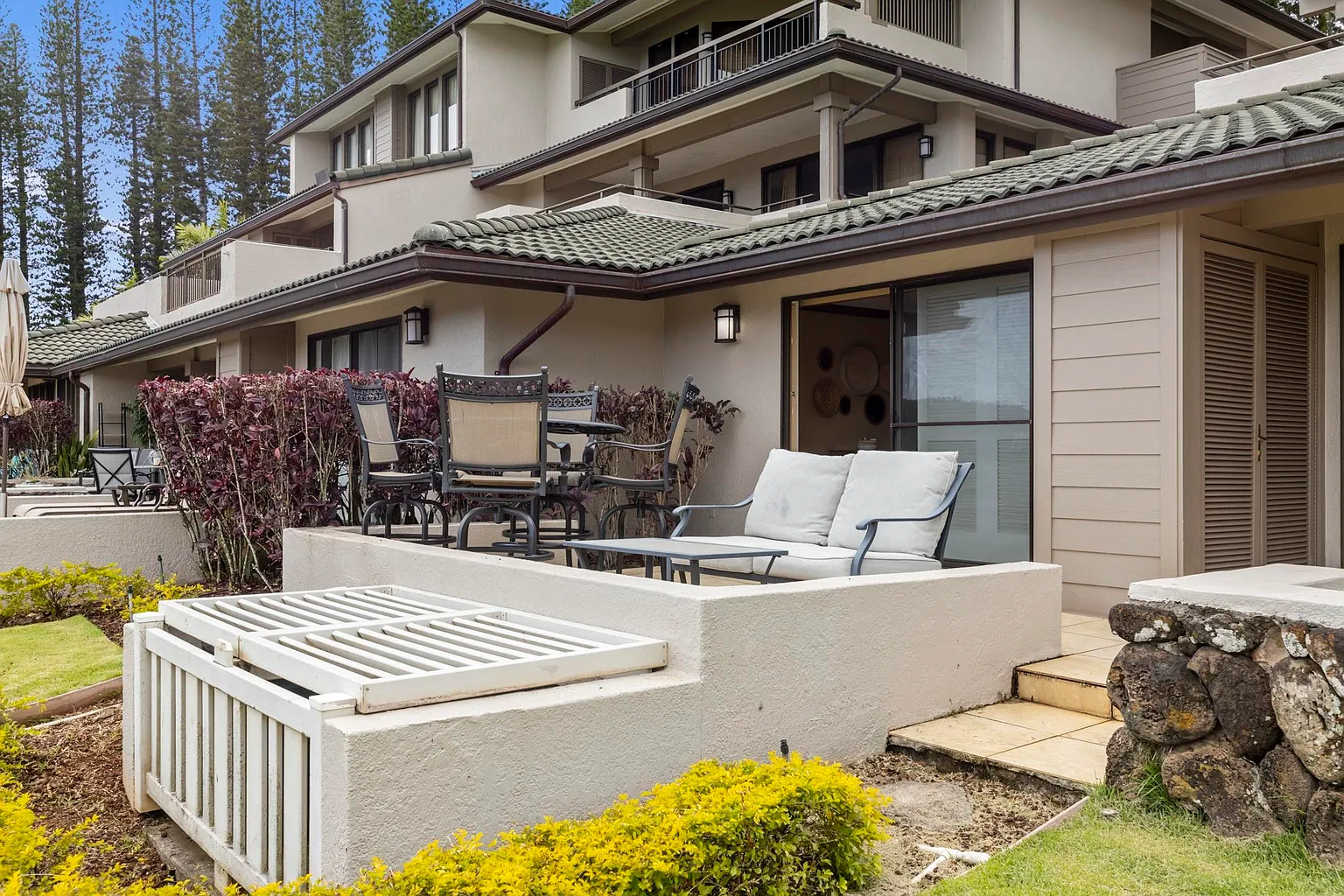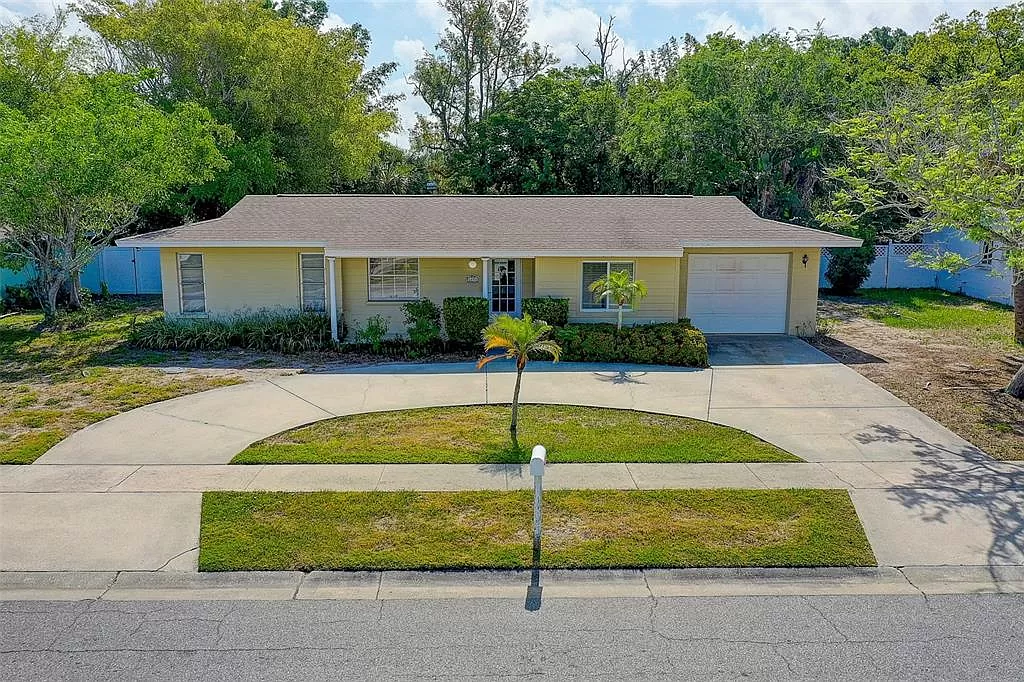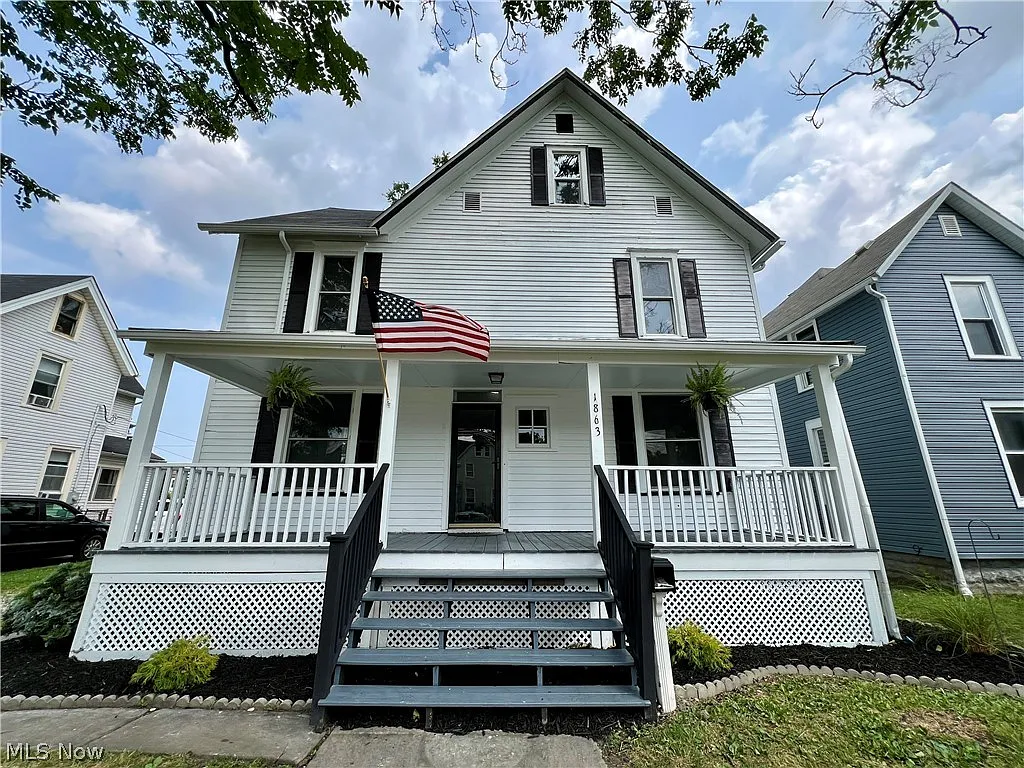Editorial Integrity
Making informed real estate decisions starts with having the right knowledge. At HomeAbroad, we offer US mortgage products for foreign nationals & investors and have a network of 500+ expert HomeAbroad real estate agents to provide the expertise you need. Our content is written by licensed mortgage experts and seasoned real estate agents who share insights from their experience, helping thousands like you. Our strict editorial process ensures you receive reliable and accurate information.
The US offers many housing options, from a suburban house with a white picket fence to a contemporary loft apartment in the city’s heart.
For everyone who wants to move to the United States, especially those on work visas like H1B, the choice between renting and buying has a significant emotional weight. While purchasing a home may be enticing, the prospect of returning to their home country lingers. And this leads to anxiety.
In this article, we’ll explore the aspects of renting and buying a house in the United States as an H1B visa holder to help you make the right choice for yourself and your family.
Table of Contents
Holders of H1B: Buy A House OR Rent?
Buying A Home
Buying a house is the ideal solution for foreign buyers looking for stability. If you plan to settle in the US, then buying a house is the right choice for you. Why you may ask? Settling in the US means you plan to one day accommodate a family of your own, which is more easily done with a house with multi-functional uses. Even if you have to return home, there are multiple ways you can still use it!
By definition, a mortgage is a long-term loan that gives you more time to stay in one place and build up equity. Even if interest rates rise during the life of your mortgage, the rate will not adjust until you refinance or sell your home.
Both concrete and intangible advantages come with home ownership. You gain a sense of stability and pride in ownership in addition to having your own home and having control over its appearance and design.
H1B visa holders who have decided to take the plunge into homeownership can receive mortgage interest deductions and other benefits. The mortgage interest deduction is one of the most significant tax breaks available to homeowners in the US. It allows you to deduct the mortgage interest you pay on your income taxes.
Foreign buyers can get a mortgage interest deduction, but they must have a social security number or an Individual Taxpayer Identification Number (ITIN). If you’re on an H1B visa, you’ll be able to get a social security number.
If you’re on a different type of visa, you can apply for an ITIN.
The mortgage interest deduction can be a significant tax break, especially if you’re in a high tax bracket. For example, say you’re in the 28% tax bracket and pay $1,000 in mortgage interest each year. You’ll be able to deduct $280 from your taxes, which will lower your tax bill.
Owning a home also allows you to build equity. As you make mortgage payments, you’ll gradually increase your ownership stake in the property. If you eventually sell the home, you’ll be able to keep any profits exceeding your mortgage amount.
Of course, buying a house is a sizeable financial responsibility. You’ll need to come up with a down payment, which is typically 20% of the purchase price. You’ll also need to pay closing costs, which are typically 2-5% of the purchase price. In addition, you’ll need to budget for ongoing expenses such as mortgage payments, property taxes, and repairs and maintenance.
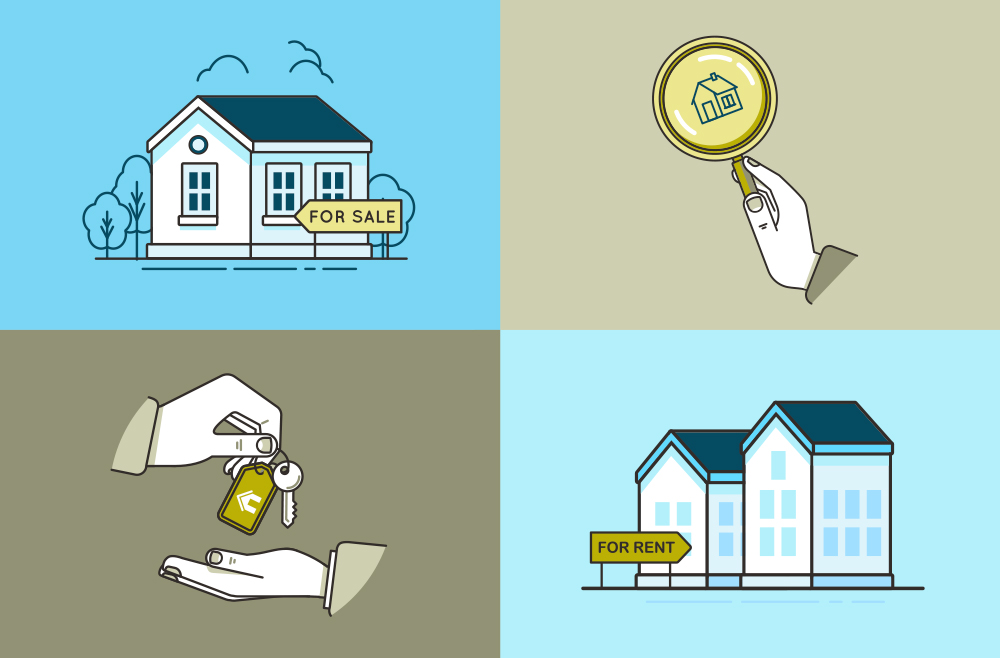
Renting a Home
Foreigners who are in the US on a work visa often choose to rent because it’s more flexible than buying. You’re not tied down to one location, so if your work situation changes, you can simply move to a new rental property.
Finding an apartment can be costly and time-consuming for immigrants, especially if they have never lived in the US. There are many things to consider, from looking for an affordable apartment and investigating the neighborhood to supplying documents and reading the lease.
A fixed-term lease of one year is typically required when a tenant rents and they must also pay a security deposit or one to two months’ worth of rent upfront. Every time your lease is up for renewal, you might experience rent increases as a renter. These rent increases may be even more pronounced if you live in particular areas of town. This might not be the case if you decide to buy a house. Additionally, some rental agreements forbid tenants from owning any kind of pet, including dogs.
It is difficult for a tenant to endure if their landlord neglects or delays performing essential house repairs. Furthermore, the landlord may be uninterested in the tenant’s requirements, and he or she frequently raises the rent for new fixed-term leases.
If you rent, you can leave as a foreigner’s lease expires. But it also means that you might be forced to relocate quickly if your landlord decides to sell the land or convert your apartment building into condos. Less dramatically, they could simply raise the rent beyond your means.
Lastly, a renter does not accumulate equity as a homeowner does. Homeowners who pay their mortgages on time reduce their debt and increase their equity.
Differences Between Renting And Buying A House on H1B Visa
If you’re on an H1B visa, renting or buying a house both have pros and cons that are worth considering. Some factors, such as the amount of time you plan on staying in the U.S., your income, and whether or not you have dependents, will play a role in your decision. Some key differences are:
Price Elements
Buying a home is frequently promoted as a way to increase wealth. The value of your home, however, can be impacted by several factors, just like with any other investment, including:
- Economic problems
- Maintenance
- Environmental issues, such as nearby hazardous waste sites and landfills
- Outdated interiors
- Exterior factors can also affect the value of your home.
- Housing Surplus
Of course, as a renter, these factors could also impact you. Negative aspects, for instance, could assist in increasing your rent. The landlord might be struggling for money and, as a result, increase the rent.
Renting and buying have very different up-front costs. You might need to pay an application fee and security deposit to move in as a renter. A larger down payment, origination fees, closing costs, taxes, and other costs are associated with purchasing a home, but these costs could be recovered over time, whereas rental money could not.
Tax Benefits
Certain tax benefits may be available to homeowners. As long as deductions are itemized, the home mortgage interest deduction lowers any out-of-pocket costs incurred in the loan’s early years.
Of course, you cannot deduct your mortgage interest from your taxes if you rent. Remember that you can still claim the standard deduction offered to all taxpayers. The same is true for homeowners who lack sufficient deductions to itemize individually.
Building Equity
As you reduce your mortgage balance, you will increase your home’s equity. Due to your local real estate market, equity also grows as your home’s value rises. If you need to borrow money in the future, home equity increases your net worth and can be used as collateral for a loan or line of credit.
Mortgage interest payments made by homeowners who itemize may be deductible from income tax, but you must do so to take advantage of this tax break. The first $750,000 in debt, or $375,000 if you’re married and filing a separate tax return, can be written off as mortgage interest.
Renters can still build wealth, but you’ll need a different strategy. If renting is less expensive than buying, you can increase your net worth by consistently investing the difference.
Responsibility for Repairs and Maintenance
Homeownership comes with a great deal of responsibility. You’ll be the one in charge of making repairs, whether it’s a broken window or a faulty furnace. As a homeowner, you are entirely responsible for maintenance and upkeep, whether you choose to handle it yourself or hire a professional.
Your landlord will handle most of the required maintenance and repairs if you rent. However, if you are the one who caused the damage, the landlord will typically require you to pay for it. For example, if you put a hole in the wall or break a window, you will likely have to pay to repair it.
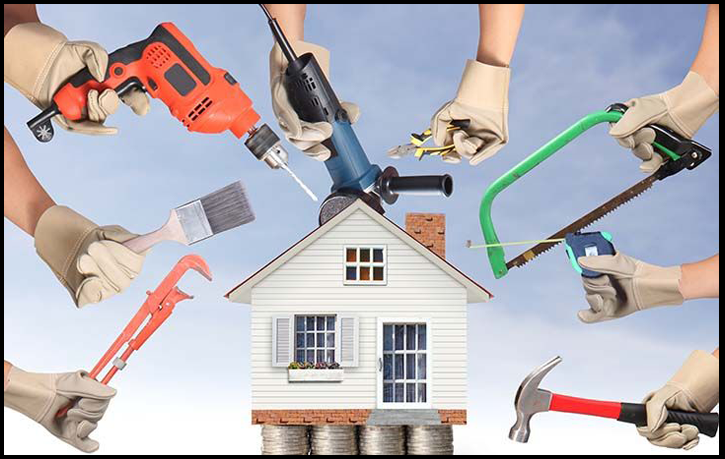
Flexibility To Make Changes
When renting a space, you typically have to accept it. Making minor alterations to the property is not something you can do with much freedom. For example, if you want to paint the walls, you must get approval from your landlord. Some landlords are more lenient than others when it comes to making changes, but you should always err on the side of caution and assume that any changes you make will not be reimbursed when you move out.
As a homeowner, you have creative control over your living space. Without anyone’s permission or consent, you can paint, redesign, or remodel the interior however you want.
Homeownership protects you from the danger and consequences of eviction. And you may exit the property at any time with complete freedom, if ever.
Should You Rent Or Buy?
Owning a home is always more affordable in the long run than renting. Your dream home in the US is an asset that will increase in value over time, and you can use your monthly rent payments to build equity in it. Purchasing a home is also advantageous from an investment standpoint because it helps build wealth over time through capital gain.
H1B visa holders can benefit significantly financially from purchasing a home in the US.
The question of whether to rent or buy has no clear-cut solution. When deciding between renting and buying, consider the following factors, especially as a foreign buyer:
- How much can you afford to spend each month on housing?
- Are you willing to make a long-term commitment?
- How long do you intend to reside here? (A general rule of thumb is to consider renting if it will be less than five years.)
- Do you prefer flexibility or stability?
- Can you afford the costs of home maintenance and repairs?
- What are your goals for your family, career, and finances? (Do you have any plans to move to work? Return to school? Boost your family size?)
- Is buying a home in the area where you want to live affordable, or will you have to move?
Renting for a while can be a fantastic option if you’re moving to an unfamiliar city as a foreign buyer, have an unstable job situation, or are unsure of what neighborhood will feel like home. It allows you the opportunity to explore the area and find the perfect place to call home before making a long-term commitment.
But remember that first-time tenants frequently forget to consider the parking situation. There is nothing more frustrating than arriving at your destination only to discover that there are no parking spaces nearby and that you must park on the street three blocks away from your apartment.
Renting an apartment or a house might not be the best course of action if you want to start a family or create a home. Additionally, there may be restrictions on what you can do to the unit. Are there no pets allowed? Why can’t you paint the room?
Oh, and the rent payments never end. Thirty years may seem very long, but your life will likely last much longer. When you rent, there won’t be any retirement relief; you’ll still have to make payments.
If you’re confident that you’ll stay in one place for several years, can afford the down payment, and are excited about the idea of building equity, then buying a home may be the right choice for you.
What Are Some Tips For Finding An Affordable Place To Live In The US?
As an H1B visa holder looking for a place to live in the United States, you should keep a few things in mind. Here are some tips:
Start your search early
It can take time to find an affordable place to live in the US, so start your search as early as possible. This will give you more time to find a place that fits your budget and needs.
Be prepared to compromise.
Making concessions to your ideal home will be necessary if you’re looking for a place to live on a tight budget. Making concessions in exchange for fewer amenities, a smaller space, or an unconventional design can help you save a lot of money. For instance, smaller, single-bedroom apartments will typically be less expensive than larger, multi-bedroom ones.
Be flexible with your location.
You may need to be willing to live in a less expensive area if you’re working with a tight budget. In many cases, the closer you are to downtown or other major city attractions, the more expensive housing will be. If you’re willing to live in a suburb or less desirable neighbourhood, you may be able to find more affordable options.
Look for government housing assistance programs.
If you’re struggling to find an affordable place to live, several government-sponsored housing assistance programs can help. These programs provide subsidies or low-interest loans to help make housing more affordable for eligible individuals and families. The Federal Housing Administration (FHA) and the United States Department of Agriculture (USDA) offer programs specifically for H1B visa holders.
Use A Referral Service or Broker
Many brokerages and referral services can help you find an affordable living place. These services can provide you with a list of available rentals in your desired area and price range. Additionally, they can help you negotiate a lease agreement and connect you with landlords who are willing to work with H1B visa holders.
Hire real estate professionals
When searching for a real estate agent with local knowledge, you’ll need to start by finding one who is licensed and certified. Searching for agents to assist you in any intricate deals that might arise as a foreign home buyer would also be beneficial.
HomeAbroad has a team of CIPS-certified real estate professionals who can help you with your international property search. We have an extensive database of properties that meet your criteria, and our CIPS Certified agents are experts in the local market.

Find the best real estate agent with international expertise
Connect with a HomeAbroad real estate agent in your area.
With our help, you can find the perfect home abroad. We can also guide you through the purchase process to make the best decision for your family. We may assist you by providing CIPS licensed agents who specialize in serving all homebuyers searching for houses in the USA.
Check out more Tips For Foreigners Buying A House in the US to know more!
Should You Buy A Property As Soon As You Arrive In The US, or Wait Until You’ve Been Living Here For A While?
There’s no right or wrong answer to this question. It depends on your personal circumstances. Are you prepared to purchase a home? In a nutshell, if you can afford it, yes. But “afford” isn’t as straightforward as how much money you have in your current bank account. You should factor various additional financial and lifestyle factors into your calculations.
Considering all of these components, “if you can afford to do it,” it becomes clear that there is more to it than meets the eye. However, considering financial factors before purchasing can help you avoid costly errors and later financial difficulties.
- Determining your debt-to-income ratio (DTI), specifically your front-end DTI, is crucial when applying for a mortgage.
- Your ability to buy a home will depend on how much down payment you can afford.
- You should factor in various other financial and lifestyle factors, such as credit history and the property’s price, when determining whether you can afford to buy a home, especially if you plan to get a mortgage.
- Additionally, you should assess the local real estate market, the state of the economy, and the implications of how long you intend to stay in one place.
Things To Keep In Mind Before Buying A Property On An H1B Visa?
If you’re considering buying property on an H1B visa, there are a few things to keep in mind.
Employment
First, you’ll need to be employed by a company that sponsors your H1B visa. You’ll also need to have a strong credit history and a good income. However, if you don’t have a strong or No US credit history, you can still obtain a mortgage. Additionally, you’ll need to factor in the cost of living in the area where you plan to purchase the property.
Maintain a budget
If you currently hold an H-1B visa and are considering purchasing a home, consider your current status, employment situation, and long-term objectives. Many people on H-1B visas wait to buy a home until they have Green Cards. If you decide to purchase a home, be careful not to spend excessively.
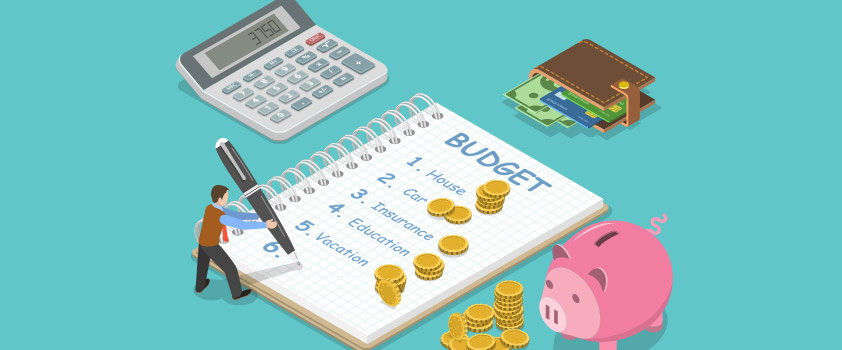
Beware of International transfer fees when paying your mortgage.
You will still owe money on your mortgage if you choose to leave the US to return to your home country. You may be required to make payments from outside the US even though it is possible to keep your US bank account. Transfers across borders can be expensive. To avoid paying these fees, consider your options for sending money to your lender.
The Bottom Line
There is no simple answer to the question of whether you should rent or buy a house on an H1B visa. It’s a beautiful investment option to acquire a house. If you’re concerned about returning to your home country or being denied a visa, you’ll still be the property owner and may rent it out to earn foreign money. You may also sell it immediately for a profit if you choose.
However, you should carefully consider all the factors involved before deciding. If you’re unsure if buying a house is right for you, then renting may be a better option.
If you’re not familiar with the purchasing process in the United States, or if you have any questions along the way, be sure to contact Home Abroad. We can help you every step, from finding a real estate agent to connecting you with other professionals who can help your purchase smoothly. Contact us today to learn more about how we can assist you in buying property abroad.

Find the best real estate agent and mortgage lender with international expertise.
Connect with a local international real estate agent and mortgage lender
Frequently Asked Questions
Are there any restrictions on how long you can stay in a rented property?
Depending on the lease agreement, you may be able to stay in a rented property for a year or more. Some landlords require that you give notice before you leave, while others do not have this requirement.
Can you claim tax deductions on your housing expenses?
Yes, with an H1B visa, you can claim tax deductions on your housing expenses and mortgage payments. A tax deduction reduces your adjusted gross income, reducing your tax liability. Here are some of the most common tax deductions you can get for owning a home on an H1B visa:
Mortgage interest deductions
Property taxes
Points paid on your mortgage
Insurance premiums
Private Mortgage Interest (PMI) Deductions
To know more, read our Guide on Buying House and Obtaining a Mortgage Home Loan on H1B Visa
Should I purchase a home while on an H1B visa? Is it fruitful?
Yes, you should purchase a home while you are on an H1B visa because it will increase in value. Additionally, it is profitable because if you have to leave the US, you can either rent out your property to earn some extra cash or sell it for more than its appraised value to pay off your lender’s debt and turn a profit. Read this article to learn why you should purchase a home while on an H1b visa.


